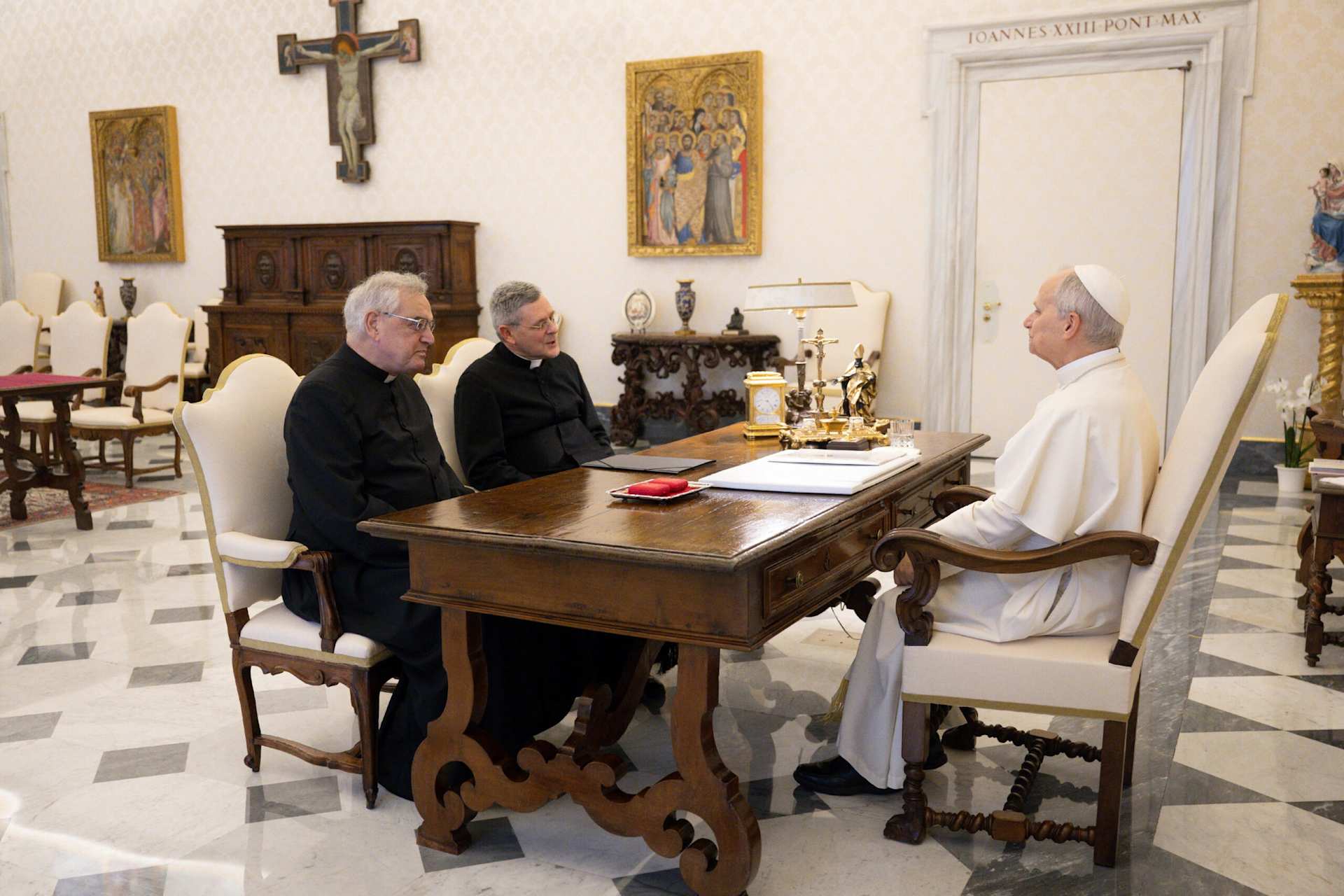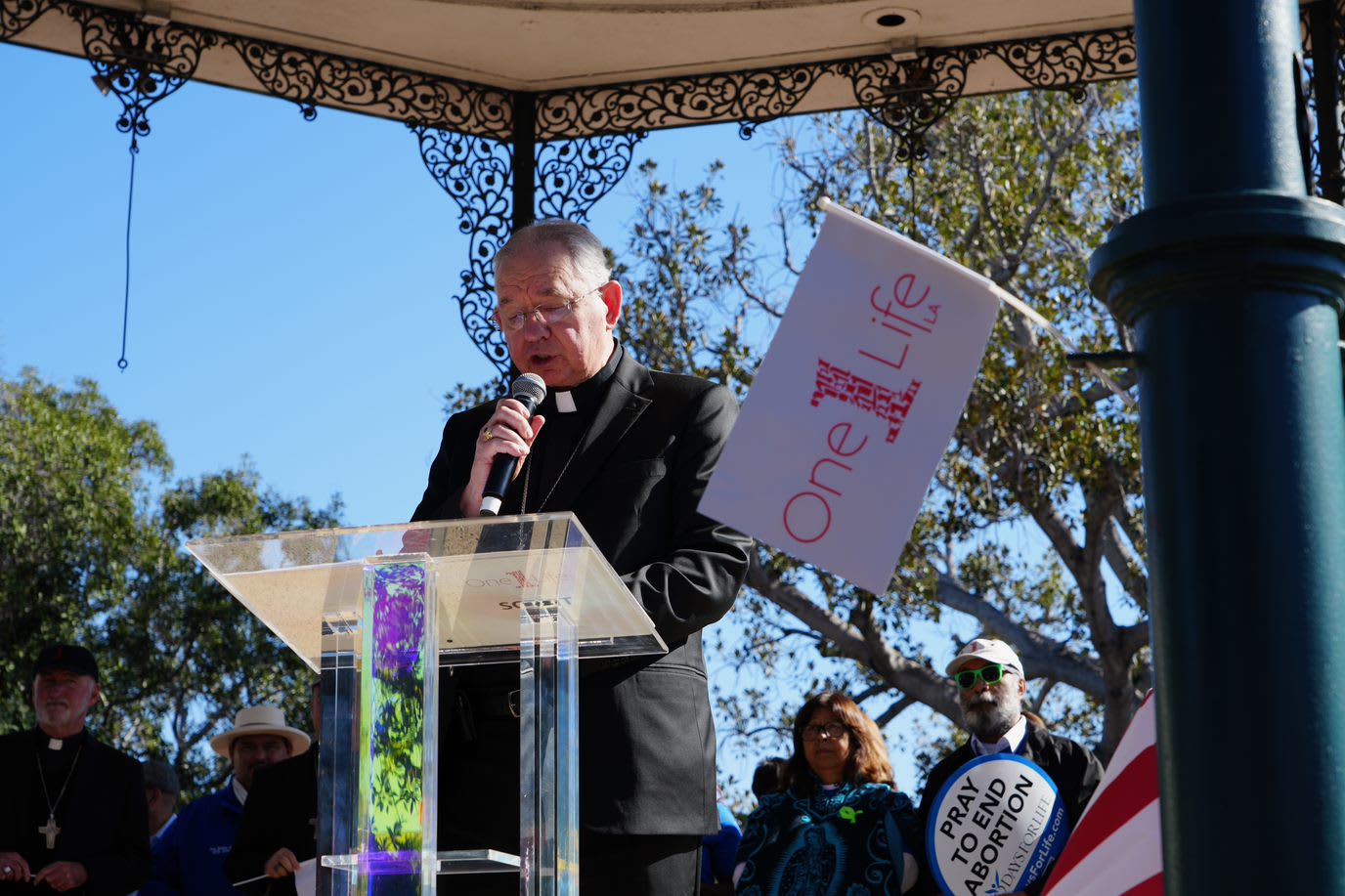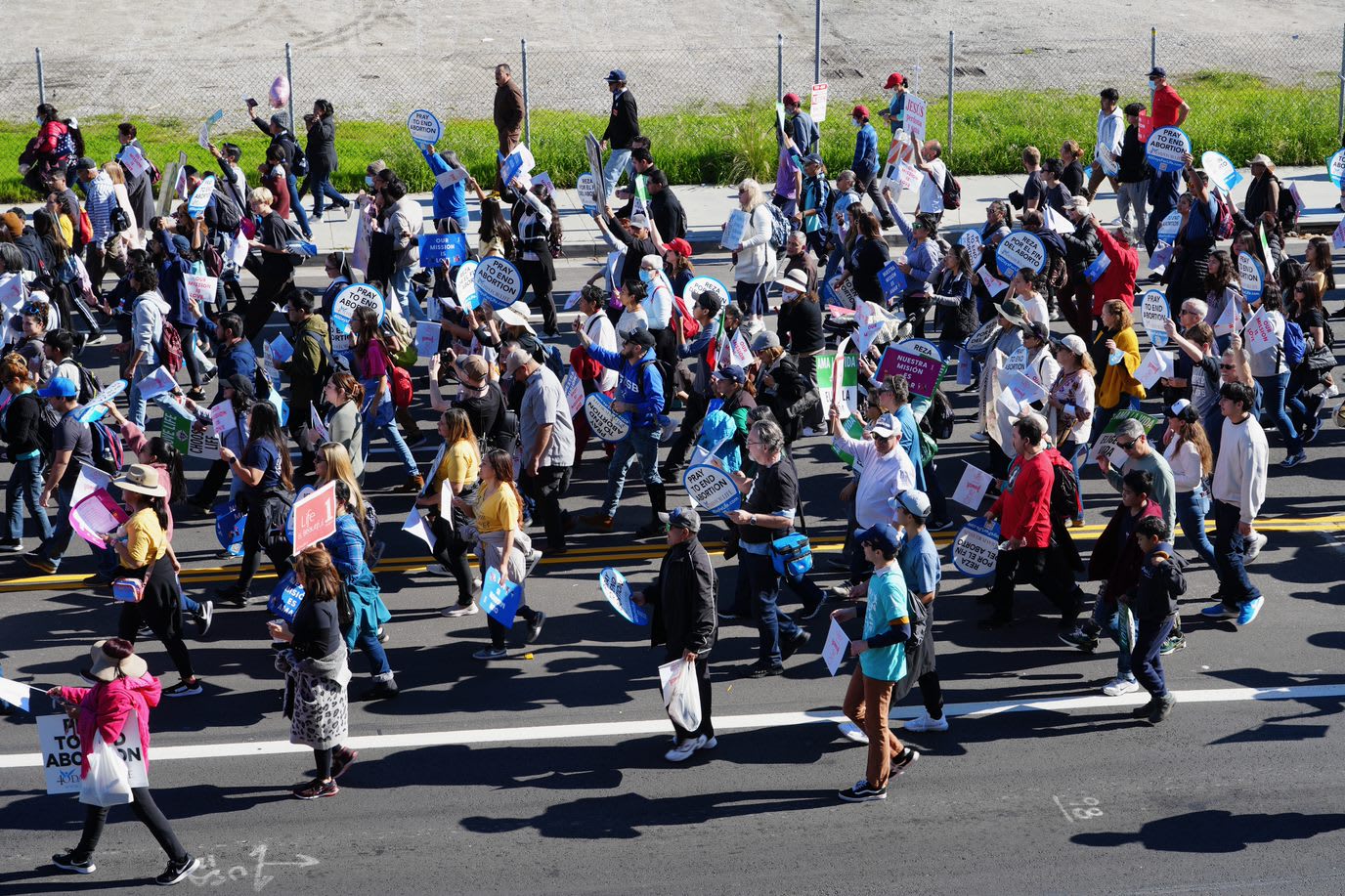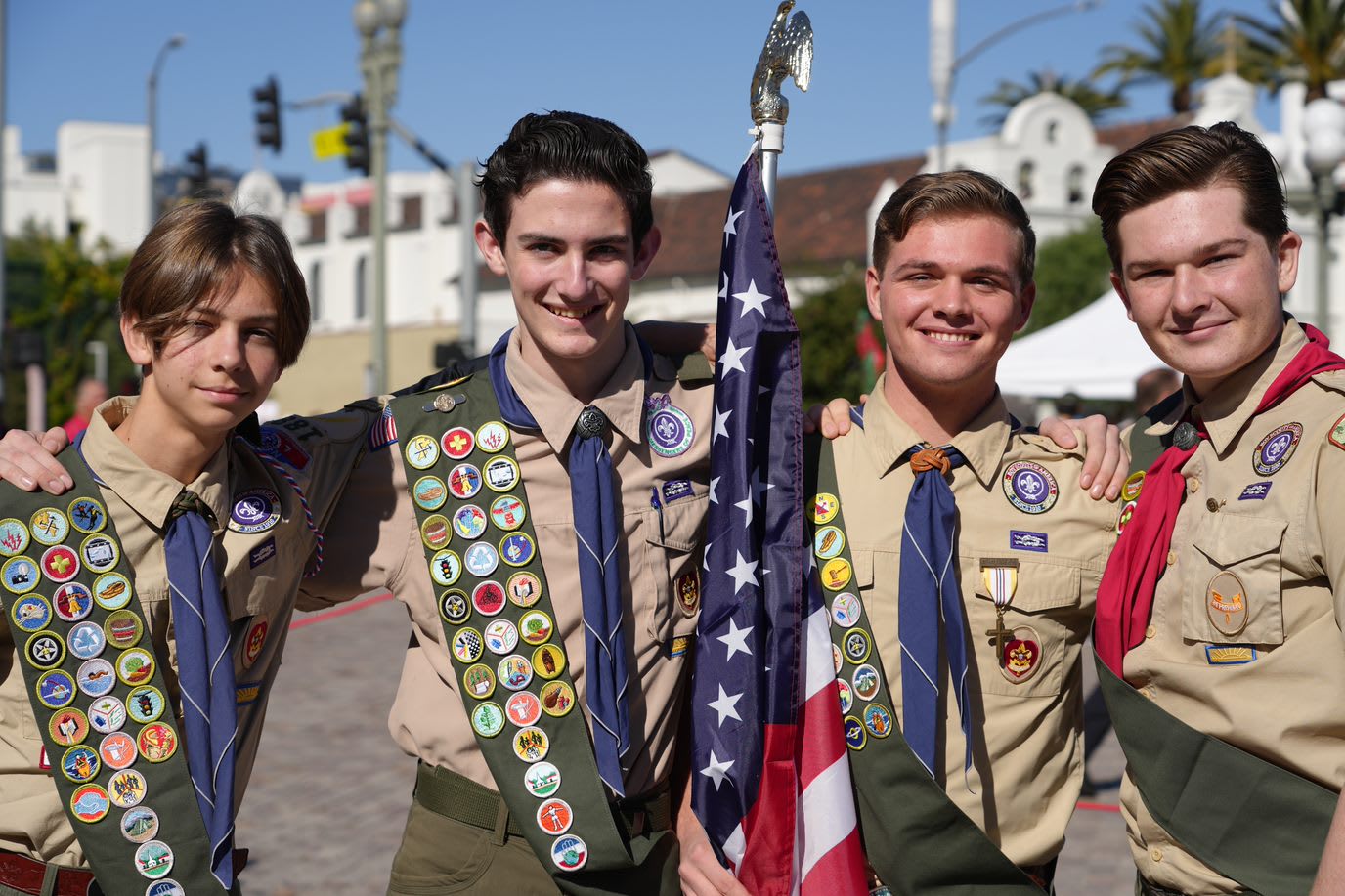 Priestly Fraternity of St. Peter Superior General Father John Berg (right) is accompanied to a Jan. 19, 2026, audience with Pope Leo XIV by Father Josef Bisig (center), a co-founder of the FSSP and its first superior general. | Credit: Vatican Media
Priestly Fraternity of St. Peter Superior General Father John Berg (right) is accompanied to a Jan. 19, 2026, audience with Pope Leo XIV by Father Josef Bisig (center), a co-founder of the FSSP and its first superior general. | Credit: Vatican Media
Jan 20, 2026 / 16:37 pm (CNA).
Pope Leo XIV and leaders of the Priestly Fraternity of St. Peter (FSSP), a community dedicated to the traditional Roman rite, held a "cordial half-hour meeting" on Monday, Jan. 19, at the apostolic palace.
The priestly fraternity said in a Jan. 20 statement that the Holy Father received in private audience its superior general, Minneapolis-born Father John Berg. Also present was Father Josef Bisig, a co-founder of the FSSP and its first superior general, who now serves as rector of the FSSP's Our Lady of Guadalupe Seminary in Denton, Texas.
The FSSP is a society of apostolic life of pontifical right founded in 1988 by priests who broke with Archbishop Marcel Lefebvre, the founder of the Society of St. Pius X, precisely in order to remain fully under the Roman pontiff while preserving the older liturgy.
The FSSP's leaders, who had requested the meeting, said in a cautiously worded statement that it was "an opportunity to present to the Holy Father in greater detail the foundation and history of the fraternity as well as the various forms of apostolate that it has been offering to the faithful for almost 38 years."
They added that the papal audience also provided an "opportunity to evoke any misunderstandings and obstacles that the fraternity encounters in certain places and to answer questions from the supreme pontiff."

The audience came at a sensitive time for the fraternity and for those who value the traditional form of the Latin rite as a whole following Pope Francis' 2021 motu proprio Traditionis Custodes that imposed sweeping restrictions on parishes and communities dedicated to the traditional Roman rite.
Due to Traditionis Custodes, the FSSP is currently undergoing an apostolic visitation initiated by the Holy See in late 2024. The visitation is part of a broader process of accompanying institutes formerly under the Pontifical Commission Ecclesia Dei but that now, due to Traditionis Custodes, fall under the auspices of the Dicastery for Institutes of Consecrated Life and Societies of Apostolic Life.
Both the FSSP and the dicastery have both stressed that the apostolic visitation is not punitive but a normal exercise of oversight so the dicastery can "know who we are, how we are doing, and how we live so as to provide us with any help we may need." The fraternity also underwent an apostolic visitation in 2014.
Although Pope Francis gave the FSSP a kind of protected but precarious niche, explicitly exempting it from some of the restrictions in a Feb. 11, 2022, decree, the priestly fraternity was still subjected to tighter structural control and scrutiny than under Benedict XVI. That decree arose from a prior private audience between Pope Francis and FSSP leaders.
Monday's meeting was therefore significant, representing Leo XIV's first clear, personal outreach to a leading traditional community and showing his willingness to listen to their concerns.
It also follows on the heels of the Holy Father granting Cardinal Raymond Burke the celebration of a pontifical Mass in St. Peter's Basilica last October, along with the pope's willingness to grant case-by-case exemptions to some traditional communities. The pope appears to be pursuing a policy of "pragmatic leniency" with such communities, neither willing to undo Francis' liturgical changes but also not enforcing them with the same rigor.
Observers have therefore welcomed Monday's meeting and are taking solace in the fact that the Church now has an American pope willing to listen to a fellow American superior general of a traditional order at a time when, according to one insider, "the waters are rough." Berg also brings much experience to his role, having already served as the fraternity's superior general from 2006 to 2018.
Like many traditional Roman rite communities and parishes, the FSSP is a flourishing community with several hundred priests and seminarians worldwide, a steady flow of vocations, and well-attended liturgies.
In its communique, the FSSP said Pope Leo XIV gave his blessing, "which he extended to all members of the fraternity."
"The Fraternity of St. Peter is grateful to the Holy Father for offering this opportunity to meet with him," the statement concluded, adding that it "encourages the faithful to continue to pray fervently during the 30 days novena of preparation for the renewal of its consecration to the Immaculate Heart of Mary on Feb. 11."













